Finger-Prick Tests Show Antibody Response to SARS-CoV-2 Reduces Over Time
|
By HospiMedica International staff writers Posted on 28 Oct 2020 |
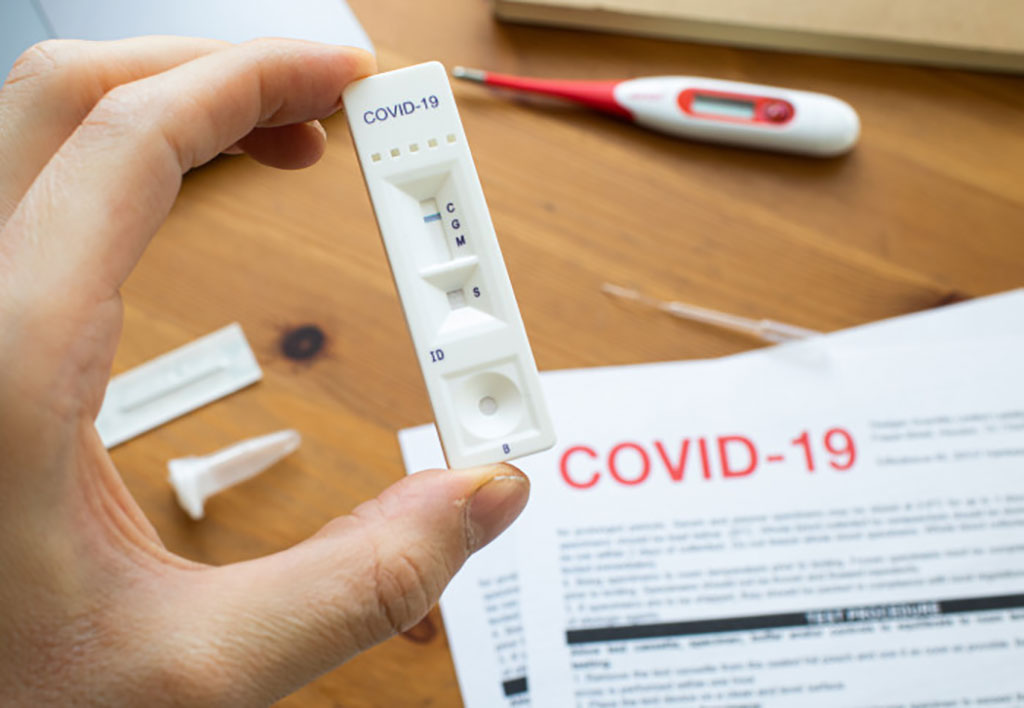
Illustration
Tests conducted on more than 365,000 people in the UK have shown that the antibody response to the SARS-CoV-2 virus that causes COVID-19 wanes over time.
Scientists from the Imperial College London (London, UK) conducted an analysis of finger-prick tests to detect coronavirus antibodies in the blood. When present these indicate that a person has been previously infected with the virus. The testing kits, called Lateral Flow Tests, detect antibodies above a particular concentration in the blood, and do not measure the amount of antibodies in a particular person. The tests are sent out to randomly-selected adult volunteers across the UK to carry out at home.
The latest report includes findings from three rounds of testing carried out over a three-month period. There were 17,576 positive results across all three rounds, around 30% of whom did not report any COVID-19 symptoms. After accounting for the accuracy of the test, confirmed by laboratory evaluation, and the country’s population characteristics, the study found that antibody prevalence declined from 6.0% to 4.8% and then 4.4% over the three months. This was found across all ages but the smallest drop was found in the youngest age group, aged 18-24, falling from 7.9% to 6.7% (14.9%), while the largest was found in the oldest group, aged 75 and above, declining from 3.3% to 2.0% (39%).
All parts of the UK showed a fall in prevalence, except the West Midlands which increased in round two and then declined in round three. London maintained the highest prevalence of antibodies across the different rounds, with 9% testing positive in round three, compared with the South West which consistently had the smallest proportion. The decline was largest in people who did not report a history of COVID-19, dropping by almost two-thirds (64.0%) between rounds one and three, compared to a decrease of 22.3% in people who had an infection confirmed by lab testing. Health and care workers, ethnic minority groups, and those living in deprived areas and large households also had the greatest burden of past infection. These findings suggest that there may be a decline in the level of immunity in the population in the months following the first wave of the epidemic.
“Our study shows that over time there is a reduction in the proportion of people testing positive for antibodies. It remains unclear what level of immunity antibodies provide, or for how long this immunity lasts,” said Professor Paul Elliott study author, Imperial College London.
“This very large study has shown that the proportion of people with detectable antibodies is falling over time. But we don’t yet know whether this will leave these people at risk of reinfection with the virus that causes COVID-19,” added Prof Helen Ward study author, Imperial College London.
Related Links:
Imperial College London
Scientists from the Imperial College London (London, UK) conducted an analysis of finger-prick tests to detect coronavirus antibodies in the blood. When present these indicate that a person has been previously infected with the virus. The testing kits, called Lateral Flow Tests, detect antibodies above a particular concentration in the blood, and do not measure the amount of antibodies in a particular person. The tests are sent out to randomly-selected adult volunteers across the UK to carry out at home.
The latest report includes findings from three rounds of testing carried out over a three-month period. There were 17,576 positive results across all three rounds, around 30% of whom did not report any COVID-19 symptoms. After accounting for the accuracy of the test, confirmed by laboratory evaluation, and the country’s population characteristics, the study found that antibody prevalence declined from 6.0% to 4.8% and then 4.4% over the three months. This was found across all ages but the smallest drop was found in the youngest age group, aged 18-24, falling from 7.9% to 6.7% (14.9%), while the largest was found in the oldest group, aged 75 and above, declining from 3.3% to 2.0% (39%).
All parts of the UK showed a fall in prevalence, except the West Midlands which increased in round two and then declined in round three. London maintained the highest prevalence of antibodies across the different rounds, with 9% testing positive in round three, compared with the South West which consistently had the smallest proportion. The decline was largest in people who did not report a history of COVID-19, dropping by almost two-thirds (64.0%) between rounds one and three, compared to a decrease of 22.3% in people who had an infection confirmed by lab testing. Health and care workers, ethnic minority groups, and those living in deprived areas and large households also had the greatest burden of past infection. These findings suggest that there may be a decline in the level of immunity in the population in the months following the first wave of the epidemic.
“Our study shows that over time there is a reduction in the proportion of people testing positive for antibodies. It remains unclear what level of immunity antibodies provide, or for how long this immunity lasts,” said Professor Paul Elliott study author, Imperial College London.
“This very large study has shown that the proportion of people with detectable antibodies is falling over time. But we don’t yet know whether this will leave these people at risk of reinfection with the virus that causes COVID-19,” added Prof Helen Ward study author, Imperial College London.
Related Links:
Imperial College London
Latest COVID-19 News
- Low-Cost System Detects SARS-CoV-2 Virus in Hospital Air Using High-Tech Bubbles
- World's First Inhalable COVID-19 Vaccine Approved in China
- COVID-19 Vaccine Patch Fights SARS-CoV-2 Variants Better than Needles
- Blood Viscosity Testing Can Predict Risk of Death in Hospitalized COVID-19 Patients
- ‘Covid Computer’ Uses AI to Detect COVID-19 from Chest CT Scans
- MRI Lung-Imaging Technique Shows Cause of Long-COVID Symptoms
- Chest CT Scans of COVID-19 Patients Could Help Distinguish Between SARS-CoV-2 Variants
- Specialized MRI Detects Lung Abnormalities in Non-Hospitalized Long COVID Patients
- AI Algorithm Identifies Hospitalized Patients at Highest Risk of Dying From COVID-19
- Sweat Sensor Detects Key Biomarkers That Provide Early Warning of COVID-19 and Flu
- Study Assesses Impact of COVID-19 on Ventilation/Perfusion Scintigraphy
- CT Imaging Study Finds Vaccination Reduces Risk of COVID-19 Associated Pulmonary Embolism
- Third Day in Hospital a ‘Tipping Point’ in Severity of COVID-19 Pneumonia
- Longer Interval Between COVID-19 Vaccines Generates Up to Nine Times as Many Antibodies
- AI Model for Monitoring COVID-19 Predicts Mortality Within First 30 Days of Admission
- AI Predicts COVID Prognosis at Near-Expert Level Based Off CT Scans
Channels
Critical Care
view channel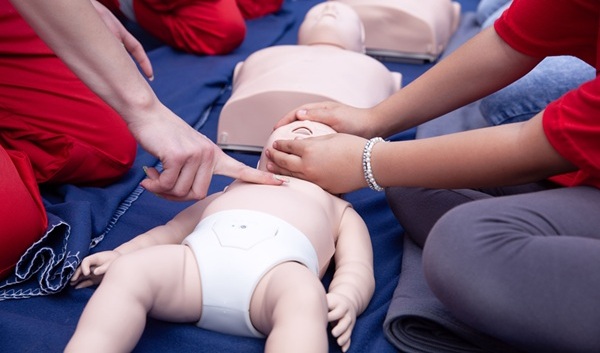
CPR Guidelines Updated for Pediatric and Neonatal Emergency Care and Resuscitation
Cardiac arrest in infants and children remains a leading cause of pediatric emergencies, with more than 7,000 out-of-hospital and 20,000 in-hospital cardiac arrests occurring annually in the United States.... Read more
Ingestible Capsule Monitors Intestinal Inflammation
Acute mesenteric ischemia—a life-threatening condition caused by blocked blood flow to the intestines—remains difficult to diagnose early because its symptoms often mimic common digestive problems.... Read more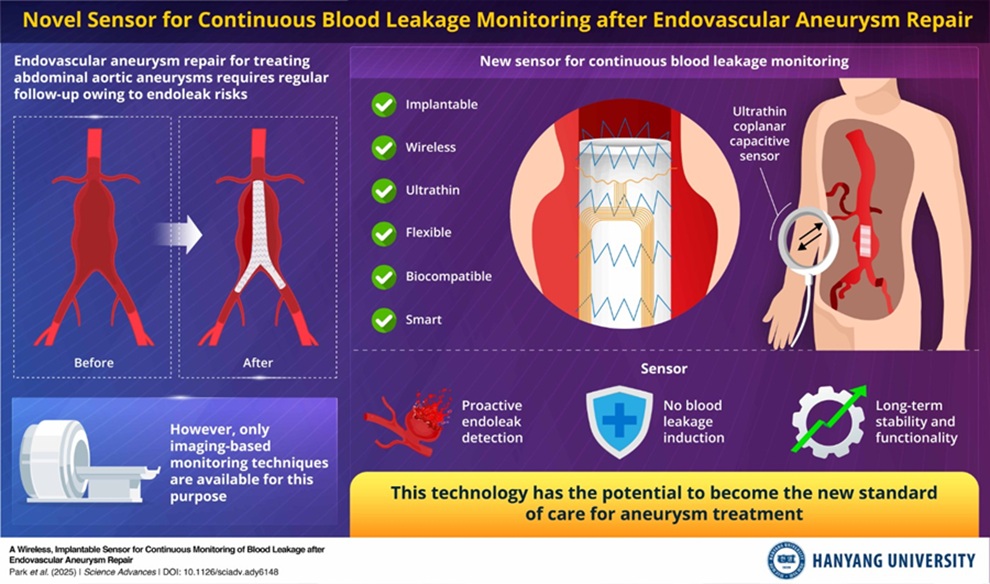
Wireless Implantable Sensor Enables Continuous Endoleak Monitoring
Endovascular aneurysm repair (EVAR) is a life-saving, minimally invasive treatment for abdominal aortic aneurysms—balloon-like bulges in the aorta that can rupture with fatal consequences.... Read more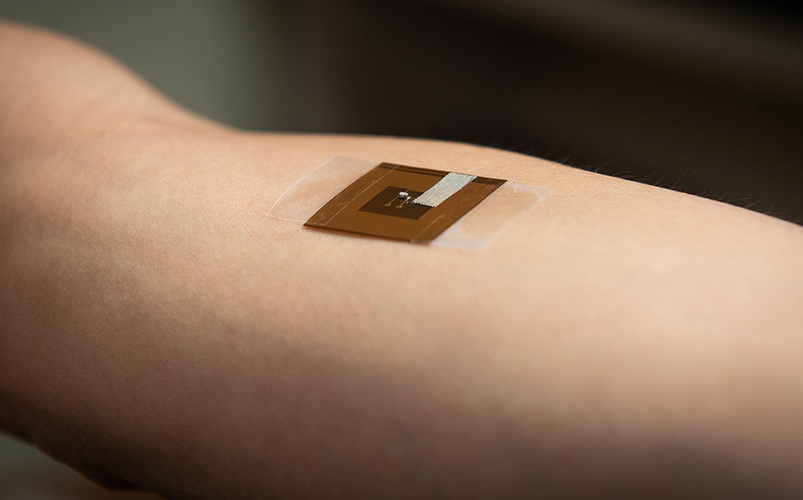
Wearable Patch for Early Skin Cancer Detection to Reduce Unnecessary Biopsies
Skin cancer remains one of the most dangerous and common cancers worldwide, with early detection crucial for improving survival rates. Traditional diagnostic methods—visual inspections, imaging, and biopsies—can... Read moreSurgical Techniques
view channel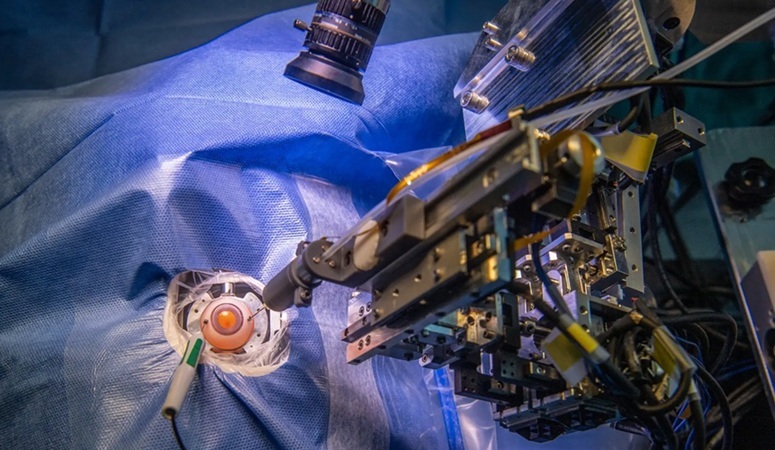
Robotic Assistant Delivers Ultra-Precision Injections with Rapid Setup Times
Age-related macular degeneration (AMD) is a leading cause of blindness worldwide, affecting nearly 200 million people, a figure expected to rise to 280 million by 2040. Current treatment involves doctors... Read more
Minimally Invasive Endoscopic Surgery Improves Severe Stroke Outcomes
Intracerebral hemorrhage, a type of stroke caused by bleeding deep within the brain, remains one of the most challenging neurological emergencies to treat. Accounting for about 15% of all strokes, it carries... Read morePatient Care
view channel
Revolutionary Automatic IV-Line Flushing Device to Enhance Infusion Care
More than 80% of in-hospital patients receive intravenous (IV) therapy. Every dose of IV medicine delivered in a small volume (<250 mL) infusion bag should be followed by subsequent flushing to ensure... Read more
VR Training Tool Combats Contamination of Portable Medical Equipment
Healthcare-associated infections (HAIs) impact one in every 31 patients, cause nearly 100,000 deaths each year, and cost USD 28.4 billion in direct medical expenses. Notably, up to 75% of these infections... Read more
Portable Biosensor Platform to Reduce Hospital-Acquired Infections
Approximately 4 million patients in the European Union acquire healthcare-associated infections (HAIs) or nosocomial infections each year, with around 37,000 deaths directly resulting from these infections,... Read moreFirst-Of-Its-Kind Portable Germicidal Light Technology Disinfects High-Touch Clinical Surfaces in Seconds
Reducing healthcare-acquired infections (HAIs) remains a pressing issue within global healthcare systems. In the United States alone, 1.7 million patients contract HAIs annually, leading to approximately... Read moreHealth IT
view channel
Printable Molecule-Selective Nanoparticles Enable Mass Production of Wearable Biosensors
The future of medicine is likely to focus on the personalization of healthcare—understanding exactly what an individual requires and delivering the appropriate combination of nutrients, metabolites, and... Read moreBusiness
view channel
Philips and Masimo Partner to Advance Patient Monitoring Measurement Technologies
Royal Philips (Amsterdam, Netherlands) and Masimo (Irvine, California, USA) have renewed their multi-year strategic collaboration, combining Philips’ expertise in patient monitoring with Masimo’s noninvasive... Read more
B. Braun Acquires Digital Microsurgery Company True Digital Surgery
The high-end microsurgery market in neurosurgery, spine, and ENT is undergoing a significant transformation. Traditional analog microscopes are giving way to digital exoscopes, which provide improved visualization,... Read more
CMEF 2025 to Promote Holistic and High-Quality Development of Medical and Health Industry
The 92nd China International Medical Equipment Fair (CMEF 2025) Autumn Exhibition is scheduled to be held from September 26 to 29 at the China Import and Export Fair Complex (Canton Fair Complex) in Guangzhou.... Read more















